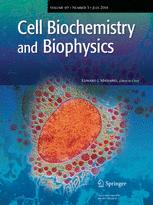 The authors of a paper on anesthetic waste gases in the operating room have pulled the article for plagiarism.
The authors of a paper on anesthetic waste gases in the operating room have pulled the article for plagiarism.
The paper, titled “Further Pieces of Evidence to the Pulmonary Origin of Sevoflurane Escaping to the Operating Room During General Anaesthesia,” appeared in Cell Biochemistry and Biophysics and came from a group at various institutions in Harbin, China.
But according to the retraction notice, the further pieces weren’t really further, after all:
Continue reading Wasted breath: Cribbing earns retraction of anesthesia paper
 Another retraction has appeared up for frequent fliers Jun Li, Kailun Zhang and
Another retraction has appeared up for frequent fliers Jun Li, Kailun Zhang and  Guangwen Tang, a rice researcher at Tufts University, landed in hot water in 2012 after her team was accused of feeding Chinese children genetically modified
Guangwen Tang, a rice researcher at Tufts University, landed in hot water in 2012 after her team was accused of feeding Chinese children genetically modified 

 You’ve got to love when an author is willing to detail the specifics of an unhelpful retraction notice.
You’ve got to love when an author is willing to detail the specifics of an unhelpful retraction notice.